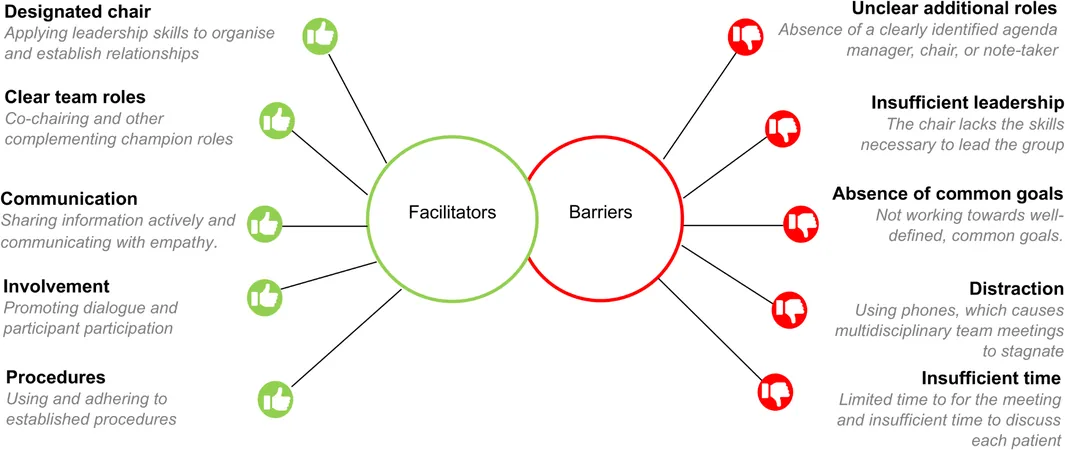
Are Parents Obligated to Pay for University? A Heartfelt Discussion from Singapore
2025-03-24
Author: Ming
Introduction
A recent discussion in an online forum sparked a significant debate about parental obligations regarding university fees. One Singaporean user shared his personal experience, revealing a rather stark family tradition where children are expected to take financial responsibility for their own higher education and even contribute a portion of their salary back to their parents once they become employed.
Family Tradition
He recounted, “My parents always emphasized that children in Singapore should pay their own university fees and give them a third of our salary later on. It was normal in our home.” He also mentioned that when his elder sibling got married, the parents expected to receive all the red packets from the wedding, emphasizing the family's financial expectations.
Reluctant Acceptance
Interestingly, he expressed a form of reluctant acceptance of this arrangement, indicating that it somewhat shielded him and his siblings from guilt-laden arguments. “Now that we’re the ones providing for them, they can’t use the ‘we raised you’ mantra anymore during disputes,” he reflected. However, the man also felt some bitterness when he observed other families saving money for their children’s education or setting aside Chinese New Year red packets for future use. Unlike him, those children had a financial cushion from the outset.
Online Forum Responses
The forum discussion generated numerous responses, dividing opinions on whether parents should fund their children’s university education. Many users agreed that if parents have the financial means, they should afford their children the opportunity to focus on their studies without the burden of debt. “Why should parents let their kids struggle with debt before they even graduate?” one user pointed out, suggesting that financial stability should prioritize a child’s education.
Personal Responsibility
On the flip side, some users argued that education is a personal responsibility, even if it means taking on student loans. “My parents could afford my tuition, but they viewed a degree as optional, so I took out a loan,” a user recounted, explaining that it was ultimately good for their personal growth and understanding of financial responsibilities.
Financial Support in Singapore
Many Singaporean students have access to study loans or can pay through a combination of their own funds and their parents’ contributions, often with the expectation that they will repay any financial help in the future. “In Singapore, it’s crucial that children learn financial responsibility instead of relying solely on their parents or the government,” another comment reflected.
Mental Health Considerations
In a related vein, mental health issues resulting from workplace stress have also caught public attention, highlighting the pressures young adults face not just academically but in their careers. A woman recently shared that the shift in her job responsibilities led to severe emotional distress, prompting her to cry 'almost every day.' Her experiences resonate with the struggles many young professionals face in balancing work demands and personal well-being.
Conclusion
The dialogue surrounding parental responsibilities for education and the pressures of modern life continues to evolve, sparking critical conversations among the younger generation in Singapore about independence, financial literacy, and mental health.



 Brasil (PT)
Brasil (PT)
 Canada (EN)
Canada (EN)
 Chile (ES)
Chile (ES)
 Česko (CS)
Česko (CS)
 대한민국 (KO)
대한민국 (KO)
 España (ES)
España (ES)
 France (FR)
France (FR)
 Hong Kong (EN)
Hong Kong (EN)
 Italia (IT)
Italia (IT)
 日本 (JA)
日本 (JA)
 Magyarország (HU)
Magyarország (HU)
 Norge (NO)
Norge (NO)
 Polska (PL)
Polska (PL)
 Schweiz (DE)
Schweiz (DE)
 Singapore (EN)
Singapore (EN)
 Sverige (SV)
Sverige (SV)
 Suomi (FI)
Suomi (FI)
 Türkiye (TR)
Türkiye (TR)
 الإمارات العربية المتحدة (AR)
الإمارات العربية المتحدة (AR)